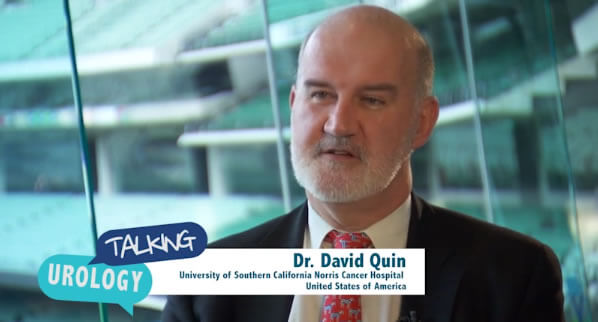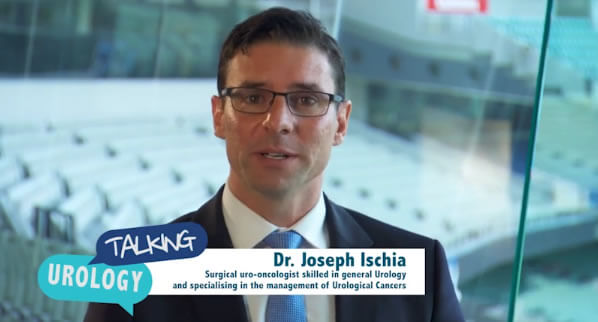APCC 2017 – Dr Piet Ost
Dr Piet Ost discusses the STOMP trial and the benefits of metastasis directed therapy in oligometastatic disease.
Talking Urology podcast transcript
APCC 2017 Interviews - Piet Ost
Joseph Ischia: I’m talking to Piet Ost from Belgium. He’s a radiation oncologist and superstar researcher who’s come to join us here at the meeting. So Piet, you gave a fantastic talk on the management of oligometastatic disease whether we should be surveilling or treatment and this has formed part of one of your key trials in Belgium called the STOMP trial. You gave us an update two days ago. Can you give us the key two or three points we should be taking away from the STOMP trial and the results you have so far?
Piet Ost: First of all, I’m very happy to be here and to be able to give you the scoop and presenting the results here because it’s actually the first time that we’re able to show you the mature results of our trial where we randomize our patients between surveillance and/or surgery with or without radiotherapy. So, we’re actually wanting to know is there any use in going after those metastases with a directed therapy, yes or no? And from our trial it appeared that our time to palliative ADT was significantly improved with the intervention with metastasis-directed therapy as compared with just surveillance. So that was one of the major points that actually or one of the first times that we can actually show a benefit of this treatment in a randomized way. The other very interesting thing we observed was that there’s actually a proportion about 10% to 20% of patients that although they receive surveillance, they remain good for a long time. So they do not progress. So that shows us that natural progression of a small proportion of metastatic prostate cancers can be very, very slow. The problem we still have is that we’re not able to know beforehand at the time of scan who are the slow progressors and who are the very fast progressors. So that is something where we have to work on in the future. The last thing I want to say about the STOMP is I think these results will be picked up quite fast especially because the introduction of PSMA especially here in Australia. We will be confronted with a lot of patients that have oligometastatic disease up to 70% of patients that we screen with PSMA are so called oligometastatic. So we will be needing to do those trials in different settings, different combinations to know what is the most optimal way going after these mets and that I think would be a nice collaboration between Europe and Australia.
Joseph: Oh we’d love to be a part of it. Thank you very much Piet.
Piet: Thank you.
Joseph: It’s fantastic to have you here in Melbourne. Thanks.











